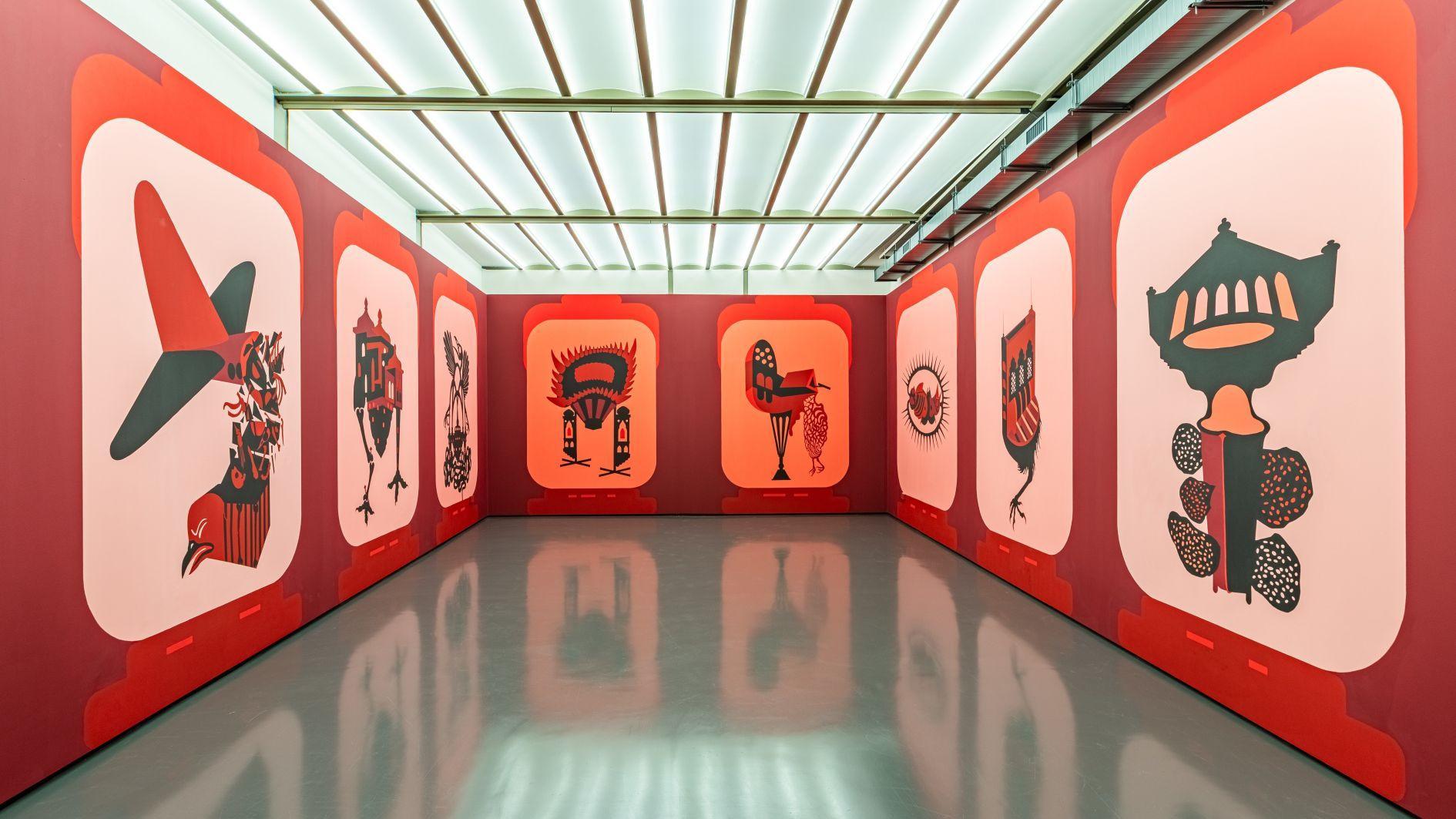
The 18th Istanbul Biennial, titled “Three-Legged Cat,” will officially open on Sept. 20, organized by the Istanbul Foundation for Culture and Arts (IKSV) with support from Koç Holding.
Lebanese curator Christine Tohme is leading this edition, which represents the first phase of a three-year biennial structure, with the following phases planned for 2026 and 2027. The biennial will be free to the public and run until Nov. 23, offering audiences a rich array of contemporary art experiences.
This year’s edition spans eight venues along the Beyoğlu-Karaköy corridor, including Galata Greek School, Zihni Han, Muradiye Han, Galeri 77, Külah Fabrikası, the Old French Orphanage Garden, Elhamra Han and 35 Meclis-i Mebusan Street. Many of these locations are new to the biennial, while others have long been central to Istanbul’s contemporary art scene. The artworks of 47 international and Turkish artists are integrated into the city’s historic fabric, creating a dialogue between past and present, architecture and contemporary creativity.
In addition to exhibitions, the biennial program includes live performances, film screenings, talks and public interventions. IKSV Chair Bülent Eczacıbaşı expressed the biennial’s longstanding influence on Istanbul’s cultural landscape since 1987, noting that it has introduced new artistic trends, challenged audiences and facilitated the rediscovery of historical spaces through art. “The biennial has contributed to Istanbul’s cultural life in ways far beyond measurable numbers, creating multilayered spaces for dialogue and reflection,” Eczacıbaşı said.
Koç Holding Chairman Ömer M. Koç noted that the biennial provides a platform for free expression, critical thinking and creative exploration amid today’s social, environmental and geopolitical challenges. “Art offers a space for individual development and societal progress,” Koç said, “and the biennial brings together thought, intuition and creativity through diverse forms of artistic expression.”
Curator Christine Tohme stressed the biennial’s engagement with contemporary global crises and human rights issues. “This edition is designed for a time when life itself is under siege, and all living worlds are being destroyed before our eyes. Artists, cultural workers and institutions are called upon to speak from the threshold between life and death, carrying forward the vitality and echoes of those who have passed,” she said. Tohme emphasized that the curatorial approach centers on preservation and forward-looking thinking, framing art as a practice that resists erasure and engages with the world’s most pressing challenges.
Special initiatives and accessibility programs are an integral part of this year’s biennial. Guided tours led by experts will allow visitors to explore single venues or curated walking routes linking four venues each. The Accessible Everything Association tours include sign language interpretation and audio description for visually impaired audiences.
Additionally, the U.N. Refugee Agency (UNHCR) and partner organizations will offer refugee-focused tours, designed to accommodate sensitivities around displacement and trauma, with Turkish-language narration and interpreter support when needed.
Educational programs for children and youth provide opportunities for young participants to discover artworks and create their own three-dimensional pieces inspired by the biennial. Activities include exhibition exploration and hands-on workshops where participants can transform everyday objects into artistic creations, fostering creativity and critical engagement from an early age.
The 18th Istanbul Biennial’s first phase opens a dialogue between historical context, contemporary art and social consciousness. Exhibitions are open daily from 10 a.m. to 6 p.m., except Mondays.